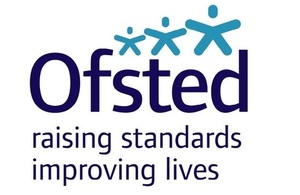Action on school improvement too slow in Suffolk, Ofsted finds
Ofsted inspectors found that too few pupils in Suffolk attend a good or outstanding school.

Suffolk County Council has been too slow in its action to help schools in the area improve Ofsted has found.
Inspectors carried out a local authority school improvement inspection in January and found that, while the council had made progress, it had not acted quickly or decisively enough to make significant improvements since the previous inspection last year.
Inspectors found that too few pupils in the county attend a good or outstanding school, particularly in Lowestoft and Ipswich which have the highest level of deprivation in the area. The number of pupils achieving average levels of attainment and making at least nationally expected progress remains below average across Suffolk. This is especially the case for disadvantaged pupils at secondary school, where the authority is the worst performing in the region.
However, the council has taken positive steps to effectively support and challenge inadequate schools to improve. Rigorous monitoring of pupils’ progress and risk assessment has meant the local authority is better able to identify those schools at risk of decline. But this work is too recent to have prevented some schools from deteriorating.
East of England Regional Director, Andrew Cook said:
While I recognise that Suffolk Council has taken positive steps to improve education in their area, and there are signs for optimism, the county is still not making swift enough progress. Much of their strategy has been implemented too recently to impact substantially on pupils’ outcomes. Pupils’ attainment in Suffolk remains below average, particularly for the most vulnerable and disadvantaged children. As a result, 25,000 children do not attend a good primary or secondary school. This needs to improve.
The local authority has a vital role to play in boosting pupils’ achievement and ensuring that all pupils in Suffolk attend a good or outstanding school. We would like to see them build upon the progress made, ensuring that the targets set by schools, especially for disadvantaged pupils, are aspirational. Therefore, I have recommended that the authority is given time to embed its improvement plan, with a further inspection carried out in the next two years to evaluate whether outcomes for all children have improved.
Inspectors found that there was still not enough school-to-school support in the county, especially in the areas that needed it most. Some school leaders expressed concern that they did not know where to access good quality support or opportunities to work in collaboration with others.
However, inspectors did find some notable improvements, including better use of formal powers of intervention where schools were identified as causing concern. These included issuing formal warning notices, deploying additional governors, and using school improvement boards before establishing an interim executive board.
There were also examples of successful partnership work between other local authority services and schools, colleges and early years settings. The council’s officers had worked well with employers, colleges and other further education providers to secure suitable provisions for all 16-19 year-olds. As a result, the proportion of young people participating in education, training or an apprenticeship had increased at a faster rate than nationally.
Areas for improvement
In addition to rapidly improving achievement, particularly for disadvantaged pupils, inspectors identified the following areas for action:
-
using the recently introduced system for monitoring achievement in all schools to identify schools at risk of declining and intervening more quickly when necessary
-
improving the effectiveness of communications and consultation with schools
-
working in partnership with all school leaders to identify priorities for improvement and agreeing a cohesive strategy to support leadership, teaching and learning
-
urgently increasing the availability to all schools of high quality support, including school-to-school support
-
clarifying the purpose of local authority officer visits to all schools in relation to monitoring, challenge and the signposting of appropriate support
Notes to editors
- The letter for Suffolk County Council is published online.
- During the inspection, inspectors held discussions with senior and operational officers, elected members, headteachers, principals, governors, strategic partners and other stakeholders. They scrutinised a range of documents relating to the local authority’s arrangements for school improvement, including notes of visits to schools by local authority staff and a selection of Ofsted inspection reports. Inspectors also took account of nine school inspections and the feedback from 16 school and academy leaders who were contacted by telephone in the week before the inspection.
- Read the framework for the inspection of local authority arrangements for supporting school improvement.
- The Office for Standards in Education, Children’s Services and Skills (Ofsted) regulates and inspects to achieve excellence in the care of children and young people, and in education and skills for learners of all ages. It regulates and inspects childcare and children’s social care, and inspects the Children and Family Court Advisory and Support Service (Cafcass), schools, colleges, initial teacher training, work-based learning and skills training, adult and community learning, and education and training in prisons and other secure establishments. It assesses council children’s services, and inspects services for looked after children, safeguarding and child protection.
- Media can contact the Ofsted Press Office through 03000 130415 or via Ofsted’s enquiry line 0300 123 1231 between 8.30am and 6.00pm, from Monday to Friday. Out of these hours, during evenings and weekends, the duty press officer can be reached on 07919 057 359.